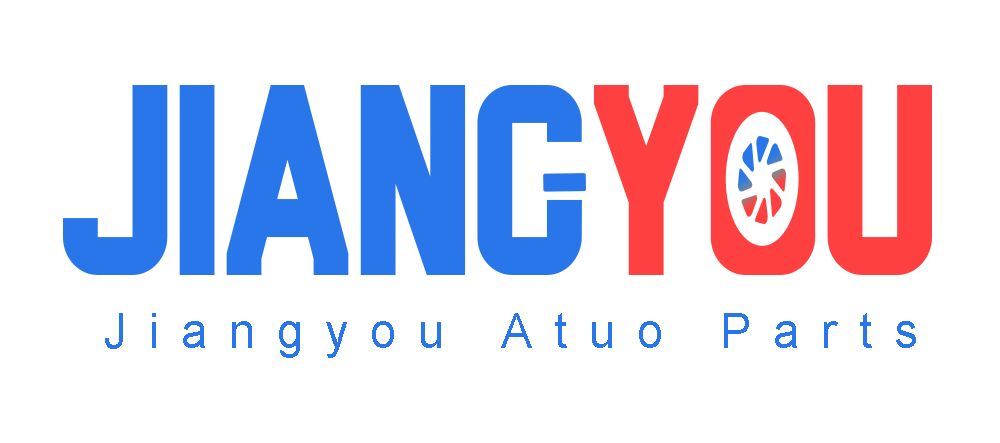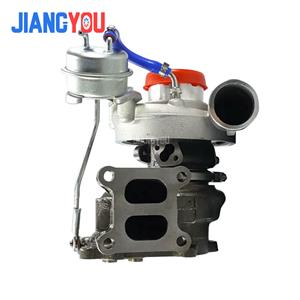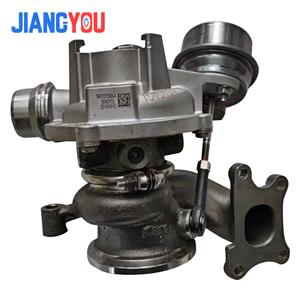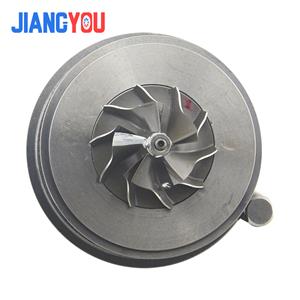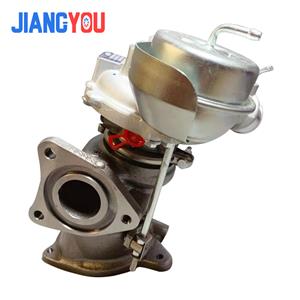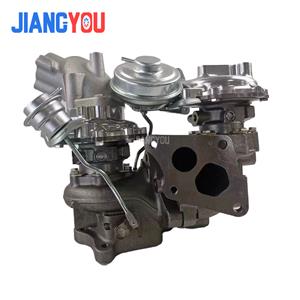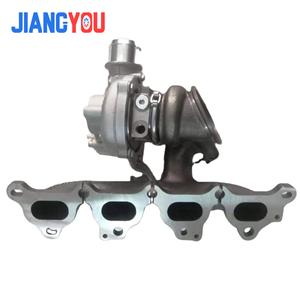- Home
- >
- News
- >
- Industry News
- >
- Future development trends of turbochargers
Future development trends of turbochargers
I. Core Trends and Macro Dynamics
"New Roles" in the Electrification Wave: From Leading Role to Key Supporting Role
Pressure on Traditional Markets: As the global automotive industry shifts towards pure electric vehicles,
the market share of traditional internal combustion engine models is being squeezed,
directly impacting the long-term market size of traditional turbochargers that rely solely on engine exhaust.
Hybrid Market Becomes a "New Blue Ocean": Turbocharging has found a new strategic positioning in hybrid vehicles.
Hybrid systems require the engine to operate in an efficient range, and turbochargers can effectively improve the engine's
transient response and power density, making them a key technology for achieving efficient, small-displacement hybrid engines.
Major suppliers such as BorgWarner, Garrett, and Vitesco Technologies are actively launching solutions for hybrid platforms.
Rise of Electric Turbochargers: This is currently the hottest technological direction. By integrating an electric motor, it can achieve:
Eliminating turbo lag: At low speeds, the turbine is directly driven by the electric motor, achieving instantaneous boost.
Acting as an "electronic supercharger": In hybrid vehicles, even when the engine is not exhausting, it can provide pressure to the intake side,
improving response speed.
Energy recovery: At high speeds, excess exhaust energy can drive the motor to generate electricity and charge the vehicle's battery.
Brands such as Audi, Mercedes-Benz, and Nissan have already applied this technology in high-performance vehicles and F1 racing cars.
Technological Innovation: Towards "Higher Performance, Smarter, and More Electric"
Meeting Stricter Emission Regulations (such as China VI b, Euro 7): The industry is developing turbochargers capable of withstanding
higher exhaust gas temperatures (over 1000°C), which is driving the application of new materials (such as new heat-resistant alloys and ceramic ball bearings).
Popularization of Variable Geometry Turbocharger Technology: VGT technology, previously mainly used in diesel engines,
is now increasingly being applied to gasoline engines to provide optimal performance and reduce emissions over a wider speed range.
Integration of 48V Systems and Turbochargers: The 48V mild-hybrid system provides an ideal voltage platform for electric turbochargers,
costing less than high-voltage hybrid systems but significantly improving performance and smoothness. Supply Chain and Market Competition
Importance of the Chinese Market: China is the world's largest automotive market and also a key market with
continuously growing turbocharger penetration. Local suppliers such as Yiyang Turbo and Hunan Tianyan are rising,
competing fiercely with international giants (such as Honeywell, BorgWarner, and Mitsubishi Heavy Industries).
Raw Material Cost Pressure: Price fluctuations of special metals such as nickel and cobalt pose cost pressure on turbochargers,
especially those using advanced materials.
II. Recent Industry News Highlights (Virtual Examples, Reflecting Real Trends)
BorgWarner Announces Order for Next-Generation Hybrid Platform from Major Chinese Automaker:
Global leading component supplier BorgWarner recently announced that it has received an order for high-efficiency
turbochargers for a next-generation plug-in hybrid platform from a leading Chinese automotive brand.
The product utilizes electric wastegate technology, enabling better synergy with the hybrid control system,
and is expected to enter mass production in 2025.
Garrett Showcases Turbocharging Technology for Hydrogen Fuel Internal Combustion Engines:
At a recent industry exhibition, turbocharger expert Garrett showcased its turbocharger solution for hydrogen fuel internal combustion engines.
Due to the different combustion characteristics of hydrogen, this technology needs to address higher combustion
temperatures and special hydrogen embrittlement-resistant materials, providing another possibility for zero-carbon emission powertrains.
Vitesco Technologies and Japanese OEM Jointly Develop Next-Generation Electronic Turbocharger:
Vitesco Technologies announced a cooperation agreement with a major Japanese automobile manufacturer to jointly
develop a next-generation electronic turbocharger for high-performance vehicles. This technology aims to completely
eliminate turbo lag and provide linear power output comparable to large-displacement naturally aspirated engines.
Honeywell Transportation Systems, now Garrett, Continues to Focus on the Aftermarket:
After becoming an independent company, Garrett is actively expanding its global turbocharger aftermarket
business while consolidating its OE (original equipment) market, launching remanufactured turbocharger units for various
popular models to meet the huge replacement demand. III. Future Outlook
The future development of the turbocharger industry will closely revolve around the following points:
Deep embrace of electrification: Electric turbochargers will become standard equipment for high-performance hybrid and fuel-powered vehicles.
The technology will become increasingly mature, and costs are expected to gradually decrease.
Expansion of new fuel applications: In addition to hydrogen, turbocharging technology is also exploring solutions
applicable to low-carbon fuels such as synthetic fuels and biofuels.
Intelligent and integrated design: Turbochargers will no longer be independent mechanical components,
but will be deeply integrated into the vehicle's powertrain control system. Through intelligent algorithms,
they will achieve optimal matching with the engine and motor, maximizing energy efficiency and performance.
In summary, the turbocharger industry has not declined due to electric vehicles, but has found new growth
points in technological transformation. It is transforming from a purely performance-enhancing component into a key
enabling technology that improves the efficiency of internal combustion engines, supports hybrid technology, and even explores zero-carbon fuels.
"Electrification" and "high efficiency" are the most crucial keywords in the industry today.
